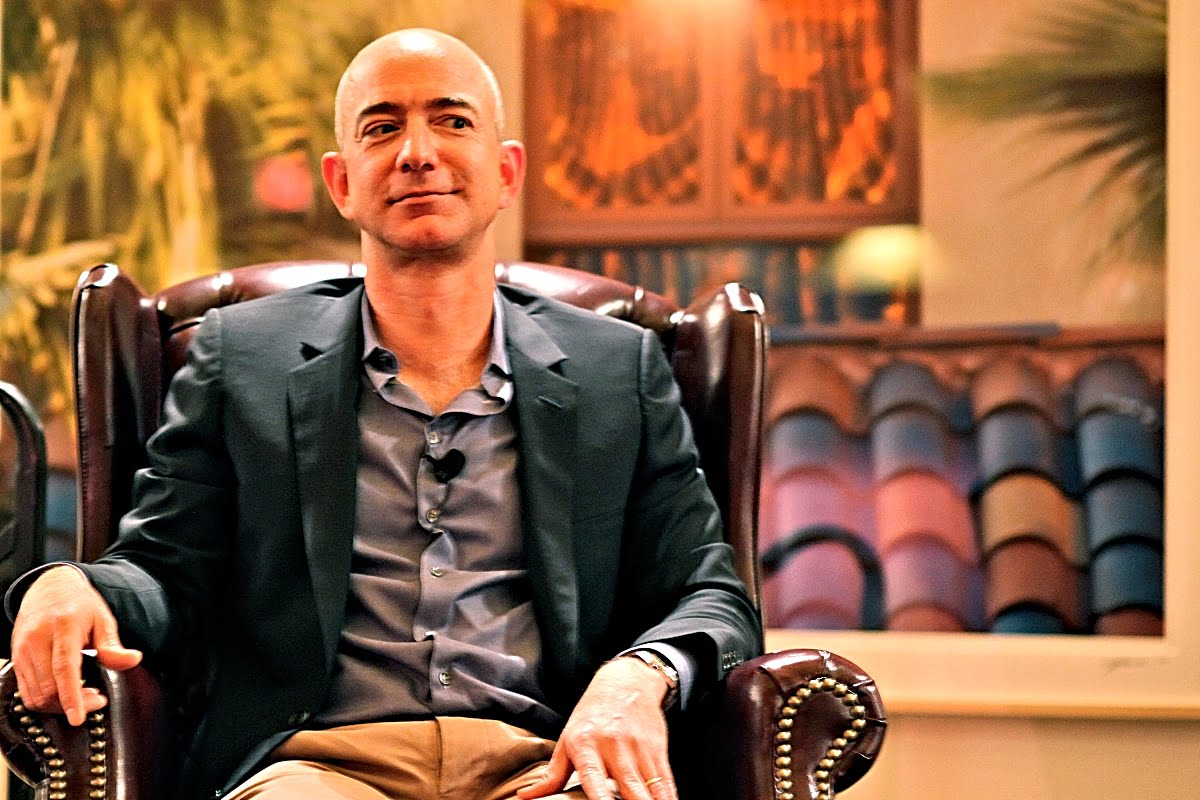A recent report by Oxfam has shown how the capitalist class has grown ever richer from the coronavirus crisis. Meanwhile, ordinary people are faced with unemployment, poverty, and homelessness. This rotten system must be overthrown.
An in-depth report published by Oxfam last month entitled Power, Profits and the Pandemic shows how the capitalist class has lined its pockets throughout the COVID-19 pandemic.
During the deepest economic and social crisis of the system’s history – when tens of millions of lives are at risk from a killer virus, 400 million jobs have already been lost, 430 million small businesses are going under and the number of people facing starvation has more than doubled to 265 million – this damning report reveals the true extent to which society’s richest have continued to benefit from super-profits and even used the desperate world situation to their advantage.
The scandalous behaviour of these billionaire bosses and multinationals in putting profit before lives is not surprising. We have already covered various aspects of what Oxfam reports in previous articles. Anyone with eyes to see or ears to hear will have felt the chronic inequality further exposed by this crisis.
But the appalling details that emerge in the data and examples collected by Oxfam no less shocking and enraging, nonetheless. The sheer scale of the ruling class’ callous disregard for human lives and livelihoods represented in the figures, and descriptions provided in the report, give us the full picture of a depraved and rotten system beyond repair.
Profits amid poverty
 The headline figure of Oxfam’s report is that 32 of the world’s largest companies will experience a $109 billion increase in profits in 2020. Meanwhile, half a billion people are being pushed into poverty by the pandemic.
The headline figure of Oxfam’s report is that 32 of the world’s largest companies will experience a $109 billion increase in profits in 2020. Meanwhile, half a billion people are being pushed into poverty by the pandemic.
‘GAFAM’ (Google, Apple, Facebook, Amazon and Microsoft), the big five tech firms, are projected to make $46 billion in extra profits this year from the outbreak of the pandemic. In addition, the world’s seven largest pharmaceutical companies are set to finish the year with a tidy profit rate of 21 percent, adding $12 billion in profits due to COVID-19 pandemic.
The 100 most valuable companies have added $3 trillion of stock market value in 2020. Jeff Bezos, the boss of Amazon, has increased his own personal wealth by $92 billion since the start of the pandemic. Oxfam calculates that this would be enough to pay each of his 876,000 employees a $105,000 bonus and still have the same amount of money as he had back in March. Yet Amazon workers are stuck on low wages, working back-breaking shifts – in totally unsafe conditions.
Over 19,000 Amazon and Whole Foods employees tested positive for #COVID19 this year.
Amazon ended hazard pay in June and has fired at least 6 employees for speaking out over work conditions. Meanwhile, Jeff Bezos’ net worth grew an estimated $70 billion during the pandemic. pic.twitter.com/9tq1h8qcvg
— AJ+ (@ajplus) October 2, 2020
Oxfam also raises the example of Indian tea companies maintaining and even increasing their profits during the pandemic by simply not paying women tea plantation workers altogether.
Clothing retailer Kohl’s this year cancelled $150 million in orders, sending home garment workers in Bangladesh and South Korea without pay, but has still paid out $109 million in dividends. In fact, 2.2 million workers in Bangladesh alone have been affected by the cancellation of textile orders this year. Factory shutdowns have lost the country an estimated $3 billion in revenues. Yet the shareholders of the world’s 10 largest apparel companies have been paid $21 billion in 2020!
The report also mentions how US fossil fuels giant Chevron is cutting 10-15 percent of its 45,000 global workforce while paying out more dividends and share buybacks to shareholders during the first quarter of the year than core revenues. Likewise, Nigeria’s largest cement company Dangote Cement has culled more than 3,000 staff on the spot but is going to pay 136 percent of its profits to shareholders this year.
Shareholder pay-outs
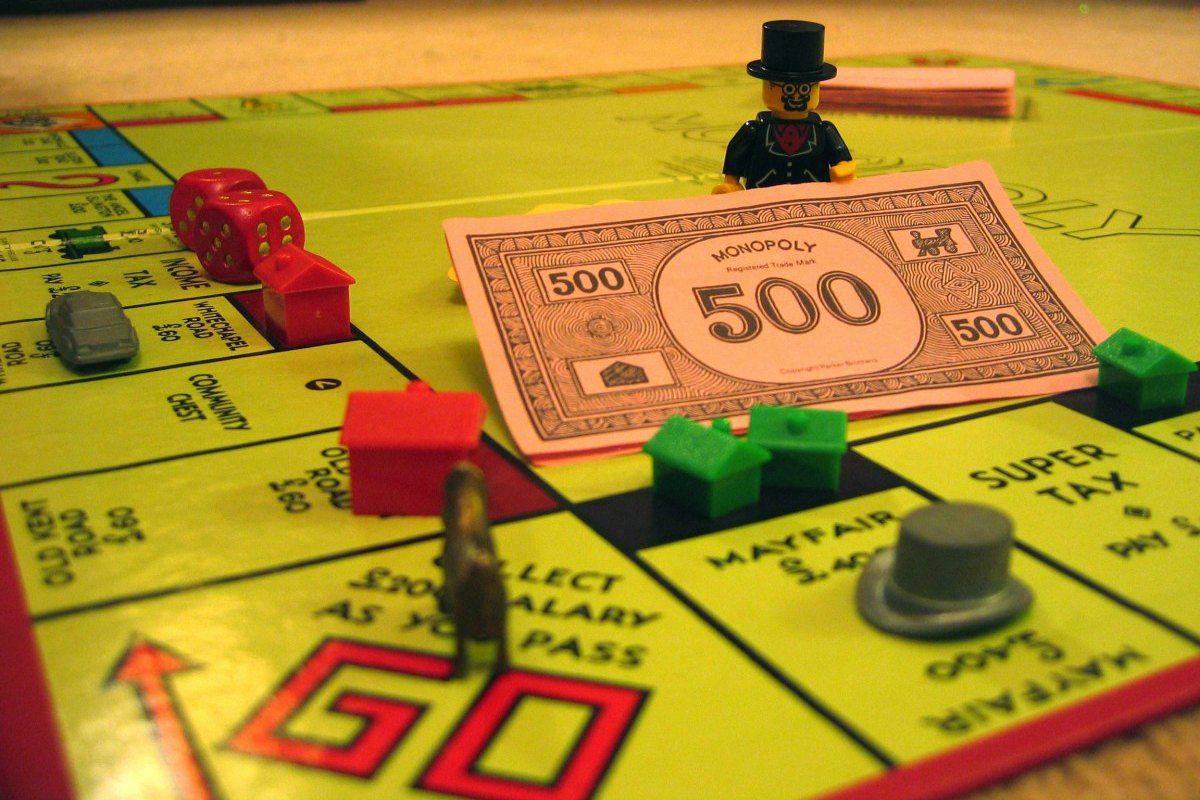 Shareholder pay-outs are a major theme of the report. Of course, most company shares in the world belong to the extremely wealthy. The report points out that the richest 10 percent of Americans own 89 percent of all US-based stocks, while 46 percent of all pension wealth in the UK belongs to the wealthiest 10 percent – compared to the poorest 50 percent, who own less than 1 percent. Outside of the world’s richest countries the contrast is even more extreme.
Shareholder pay-outs are a major theme of the report. Of course, most company shares in the world belong to the extremely wealthy. The report points out that the richest 10 percent of Americans own 89 percent of all US-based stocks, while 46 percent of all pension wealth in the UK belongs to the wealthiest 10 percent – compared to the poorest 50 percent, who own less than 1 percent. Outside of the world’s richest countries the contrast is even more extreme.
In reality, in all countries across the world, the majority of value in stocks and shares is concentrated in the hands of a tiny minority, a fraction of a percent of the global population. During a period of historically low investment in the world’s productive forces relative to total economic output, this tiny minority is taking an ever-greater slice of the pie by simply paying itself more – either in the form of share dividends and buy-backs or executive salaries and bonuses.
What Oxfam refers to as the “shareholder first” model is just the capitalist class ensuring they continue to increase their wealth while markets are shrinking and more prudent investment appears futile.
The report highlights that, in 2016 to 2019, 59 of the world’s most profitable companies paid almost $2 trillion to their shareholders, with pay-outs averaging 83 percent of profits. In many cases pay-outs to profiteers actually exceeded company profits.
In one example, especially relevant to COVID-19, the three largest healthcare companies in South Africa – Netcare, Mediclinic and Life Healthcare Group – gave an incredible 163 percent of their profits to shareholders through dividends and share buy-backs. Oxfam rightly draws the link between these huge pay-outs and how badly South Africa has been hit by the pandemic, with its health service chronically under-funded and health workers super-exploited and wholly ill-equipped to deal with the coronavirus outbreak.
A particularly sickening aspect of the report details how companies all over the world continued paying out eye-watering to shareholders while requesting – and receiving – massive government hand-outs due to the pandemic.
The UK government gave chemicals giants BASF and Bayer £1.6 billion at a time when the companies confirmed plans to pay out almost €6 billion in shareholder dividends. Seven French companies paid out to shareholders at the same time as using public money to pay staff. In total, the 40 largest companies in France have paid out €35-40 billion to shareholders this year.
In the US, Royal Caribbean, Halliburton, General Motors, McDonalds, 101 Caterpillar, Levi Strauss, Stanley Black & Decker, Steelcase and World Wrestling Entertainment all maintained the same levels of shareholder pay-outs while receiving government bailout money and/or laying off workers, cutting hours and wages.
In Germany, BMW has given out more than €1.6 billion in dividends despite furloughing its workers with money from the state. And, the most appalling example of all, the three US pharma giants who have been given billions of public money to develop a COVID-19 vaccine – Johnson & Johnson, Merck and Pfizer – have given shareholders $16 billion since January.
Oxfam International Executive Director Chema Vera correctly points to the underlying cause of the world situation:
“The economic crisis we are suffering because of the pandemic has been fuelled by a rigged economic model. The world’s largest corporations are making billions at the expense of low wage workers and funnelling profits to shareholders and billionaires.”
The rigged economic model in question is capitalism.
Deadly exploitation
 We also find many graphic examples in the report of how companies are culpable for the deaths of thousands of their employees during this pandemic.
We also find many graphic examples in the report of how companies are culpable for the deaths of thousands of their employees during this pandemic.
Meat processing plants around the world have seen COVID-19 spread like wildfire. In the United States, around 27,000 meat-packing workers have tested positive. But the country’s largest meat company, Tyson Foods, has spent considerable time, money and effort lobbying the government to ensure its plants are not shut down. In Brazil, the meat company JBS – whose board has a history of bribing government officials – are pushing for new safety measures regarding the social distancing of food plant workers to be reeled back. Hundreds of its workers have tested positive for Covid-19.
The introduction to the report begins with a quote from the widow of a poultry worker who died from the coronavirus in Maryland, United States:
“They need workers to work to make money, but they don’t care about people’s lives. The chicken plant still works, still makes money… If my husband – if they care about his health, if they let him know about the fever – he’d still be living now.”
The implication is that the poultry plant was aware of her husband’s symptoms but forced him to continue working. More fundamentally, her statement indicates the advancing class consciousness of the working class, because of the murderous negligence and loss of livelihood workers have suffered at the hands of their bosses during the pandemic.
Food delivery companies have faced a huge backlash from workers as their model of bogus ‘self-employment’ without basic workers’ rights to sick leave or healthcare has been exposed. The report touches on how the lack of these rights, along with safety provisions such as PPE for drivers, has led to strikes across the world, such as among Instacart workers in the US, and Zomato and Swiggy workers in India.
Elsewhere, it mentions how the workers of the global call-centre agency Teleperformance have also struck against the complete lack of safety provisions by bosses, and the refusal to allow call-centre agents to work from home. The company has taken retaliatory measures against workers for wildcat strikes in 10 different countries.
Oxfam explains that, in Peru, Mexico, Guatemala and the Congo, mines have been kept open with no safety provisions, despite hundreds of COVID-19 cases being reported. They also explain how child labour has increased on cocoa farms in West Africa during the pandemic, as enforced lockdowns have led to a shortage of casual adult labour. In Thailand, seafood workers have been left to fend for themselves as COVID-19 has impacted global supply chains, including covering their own provisions of safety equipment while working in unsafe conditions.
Philanthropic drops in the ocean
The mainstream media has been full of stories of corporate generosity throughout the pandemic. Yes, bosses might still be raking in mega-profits and literally working their employees to death, but they do it out of love for humanity. This, we’re told, is proven by the sums of money they and their companies donate – out of the goodness of their hearts – to charitable causes.
Oxfam’s report puts paid to this fantasy. It finds that, on average, corporations around the world donated only 0.32 percent of their operating income to such causes in 2019. The US state lost approximately $135 billion in revenue from corporate tax dodging in 2017, but the philanthropic donations of US corporations totalled less than $20 billion.
As the report notes, most companies prefer voluntary contributions to social causes over obligatory ones – such as legally-required tax payments or paying their working a living wage. This is because, with voluntary donations companies can give whatever they like, and dress up the gesture to show themselves in the most favourable light possible. This practice acts as a useful distraction from the much larger amounts they are avoiding paying to governments and their own workers. As a marketing strategy, it actually saves them a lot of money, while doing nothing to fight poverty and other social crises.
The role of governments
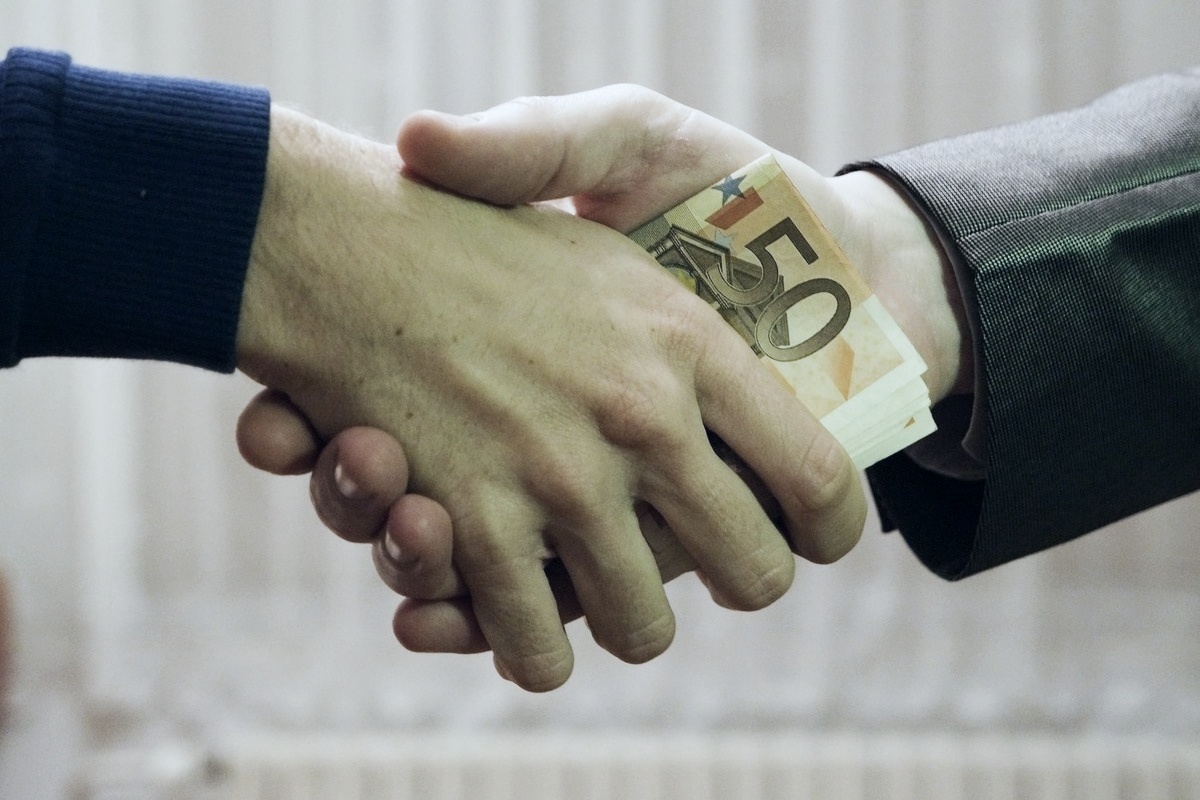 Although the focus of the report is corporate greed in relation to COVID-19, governments across the globe are also completely exposed for their role in colluding with big business. We have already discussed several examples of governments bailing out corporations and even bending the pandemic guidelines to suit their wishes, while the tops of these corporations have continued to take massive profits and share dividends at the cost of their workers. In fact, the plethora of Keynesian stimulus packages introduced by states around the world to combat the crisis are all in the cause of propping up big business.
Although the focus of the report is corporate greed in relation to COVID-19, governments across the globe are also completely exposed for their role in colluding with big business. We have already discussed several examples of governments bailing out corporations and even bending the pandemic guidelines to suit their wishes, while the tops of these corporations have continued to take massive profits and share dividends at the cost of their workers. In fact, the plethora of Keynesian stimulus packages introduced by states around the world to combat the crisis are all in the cause of propping up big business.
The list of companies that have been bailed out includes thousands with histories of tax avoidance. Reuters found that over 40 percent of recipients of $4 million or more from the state in the US Payment Protection Program did not pay any taxes last year whatsoever. Meanwhile, big corporations have also taken advantage of a US government relief fund aimed specifically at small businesses to the tune of $350 million. 19 fossil fuel companies are set to receive an additional $1.9 billion in tax breaks as part of the US government’s big business bailout. In the UK, 29 percent of those taking corporate loans from the government during the pandemic are linked to known tax havens. A big proportion of the rest probably just haven’t been caught yet.
To make sure absolutely sure that their representatives in government chambers act according to their interests during this crisis, the ruling class has been busy lobbying like never before. US lobbyists spent $903 million in the first quarter of this year alone – just short of a record spend.
Oxfam refers to the array of ways in which corporate lobbying has met with success during this period. Various companies have been able to keep their operations fully functioning against the guidance of the World Health Organisation and governments’ own guidelines, from food manufacturers in the US to apparel factories in Mexico. Indian lobbyists have managed to pause taxation on stock buy-backs, and various mining conglomerates are legally taking tax holidays. In the EU, many companies – particularly in the aviation industry – have used COVID-19 as an excuse to delay environmental regulations and to avoid reducing their carbon dioxide emissions.
Despite governments around the world reluctantly taking measures to mitigate a complete economic and social catastrophe, which initially appeared in the eyes of many ordinary people to be responding to human need, this report illustrates whose side they are really on. One government after another has proven itself more than ever during this crisis to be of, for and by the rich.
The ‘building back better’ myth
Given the picture of untrammelled wealth concentration and super-exploitation painted in the Oxfam report, it presents a serious warning for those who imagine that the world’s trajectory has been changed for the better by the pandemic:
“COVID-19 is not a glitch. If the world continues on its current track, the pandemic is likely to result in long-term and structural changes. Existing socioeconomic and political divisions will likely deepen. The main winners of the post-COVID-19 economy are expected to be large corporations and wealthy shareholders who will have even more power and resources to shape public policy.”
Crucially, the report frames its argument not in terms of a crisis which COVID-19 created, but in terms of “a worrying economic trend” which “COVID-19 is accelerating”. The crisis of capitalism was already there before the pandemic, which both brought it to the surface and deepened it. And the chasmic wealth divide between the classes, as the report identifies at several points, was already increasing over a long period.
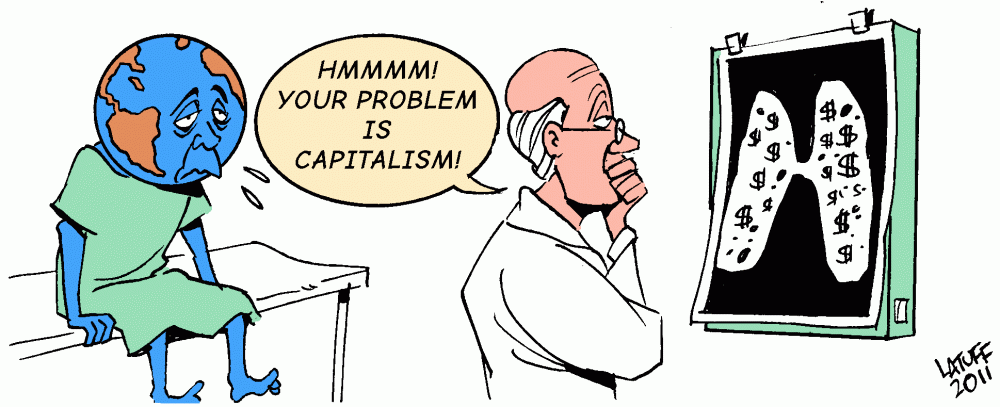
No future under capitalism
However, Oxfam likes to imagine that things could have been different on a capitalist basis, if only big companies hadn’t given away quite so much money to shareholders. They also suggest that there could be a different future ahead of us from this point, if only those at the top ‘chose’ differently. “We have a choice,” says Vera, “between returning to ‘business as usual’ or learning from this moment to design a fairer and more sustainable economy.” The ‘we’ he is referring to is the very ruling class exploiting the system for all they can get, and their paid-up representatives in governments around the world!
Karl Marx explained in Capital, over 150 years ago, that the accumulation of wealth inevitably leads to its concentration in fewer and fewer hands. The Oxfam report itself admits that mechanisms such as stock buy-backs – by which the ruling class can claim an even-greater proportion of the wealth produced by workers – are nothing new. And when Vera talks about the ruling class having more and more “power and resources to shape public policy”, how does he imagine that this power and wealth can be reined in within the limits of the system designed in the interests of and controlled by that same ruling class?
There is a reason, of course, that Oxfam cannot see beyond the limits of the capitalist system. The charity has doubled the number of its own executives on six-figure salaries in recent years. The report mentions that the capitalist class prefers to donate crumbs from the table voluntarily – indeed, to charities like Oxfam! It is part of the very system it exposes in this report.
The report’s prognosis is actually directed towards the strategists of capital as an ominous warning about the future of their system. Unfortunately for the capitalists, “further erosion of popular trust in democratic (read: capitalist) governance and increased social unrest” are the inevitable result of the current crisis. There is no room for reform within a system facing economic collapse, and no piecemeal reforms would be enough to abate the anger swelling amongst the ranks of the world’s working class.
The socialist response
 Far from trying to mend a system that is beyond repair, which is hardwired into creating mass poverty alongside a profligate minority of parasites, the solution is to do away with it altogether.
Far from trying to mend a system that is beyond repair, which is hardwired into creating mass poverty alongside a profligate minority of parasites, the solution is to do away with it altogether.
A socialist society’s response to COVID-19 and the economic problems facing ordinary people today would be completely different. It wouldn’t just be a case of curtailing dividend pay-outs or keeping workers earning poverty wages in unsafe conditions. It would mean pooling the entire resources of society so that all basic necessities could be guaranteed, including the maintenance of full employment with full wages for all during lockdown conditions, and free, quality healthcare for anyone in need.
Workers themselves – the real experts on their own workplaces – would be in charge of deciding democratically how to make their labour conditions safe and sustainable. The glimpses of this process that we saw this year in several countries would be generalised and encouraged across society.
There would be no such thing as a lack of elementary safety equipment for healthcare workers; no such thing as having to choose between risking your life and risking your livelihood – or having that choice made for you.
The astronomical sums that Oxfam reports have been siphoned off to bosses and shareholders in the last year – which dwarf individual government bailouts in most cases – demonstrate that the wealth already exists for many basic necessities to be provided to the whole of society. And that is on the basis of a wasteful and destructive system, which is far from making the most of our productive potential.
Oxfam’s welcome report adds fuel to the fire in our struggle for a system that can unlock the full potential of humanity.
The pandemic: The rich vs the rest
By Manon Powrie, KCL Marxists
 It is no accident that billionaires have seen their wealth increase during the pandemic. The super-rich have raked in huge profits whilst workers around the world see living standards fall and inequality rise.
It is no accident that billionaires have seen their wealth increase during the pandemic. The super-rich have raked in huge profits whilst workers around the world see living standards fall and inequality rise.
This stark polarisation is exacerbating class contradictions under capitalism – exposing in plain sight the fact that profit is made from the exploitation of the working class.
Inequality and injustice
A recent Oxfam report suggested that as many as 400 million jobs have been lost during the pandemic. Yet 32 of the world’s most profitable companies are expected to make $109 billion more this year alone.
The report rightly points out that the pandemic has not created inequality – it is built into capitalism.
The defendants of capitalism claim that this is ‘just the way it is’; as if these processes unravel out of thin air. In reality, this eye-watering inequality and injustice is the result of the economic laws of the capitalism system.
Under capitalism, all real wealth and value is created by workers. But this inevitably accumulates and concentrates at the top, in the hands of the capitalist class – those who own the means of production.
At the same time, when the system goes into crisis, the capitalists place the burden onto the shoulders of the working class: laying off workers; imposing austerity; and implementing cuts. All of this so as to avoid seeing any fall in ‘their’ profits.
Profits vs lives
The capitalists and their political representatives will go to great lengths to defend this ruthless and rotten system. Hence today they are throwing money at the global economy, desperately trying to pull capitalism out of its ever-deepening crisis.
Since the beginning of the pandemic, the bosses have been pushing politicians to recklessly reopen the economy, even if this means sacrificing workers’ lives. After all, the capitalists primarily view human life as a means of accumulating wealth, through the exploitation of labour. In other words, they will always put profits before lives.
It is no surprise, then, that many healthcare workers in Britain have heavily criticised the Tory government over their hypocritical clapping for the NHS.
These frontline workers are rightly enraged at this tokenistic gesture, which offers no real material improvement for those bearing the brunt of the crisis in hospitals. Nor does it solve the problem of consistent underfunding and cuts by the Tories, which have left the NHS and its workers in an extremely precarious position.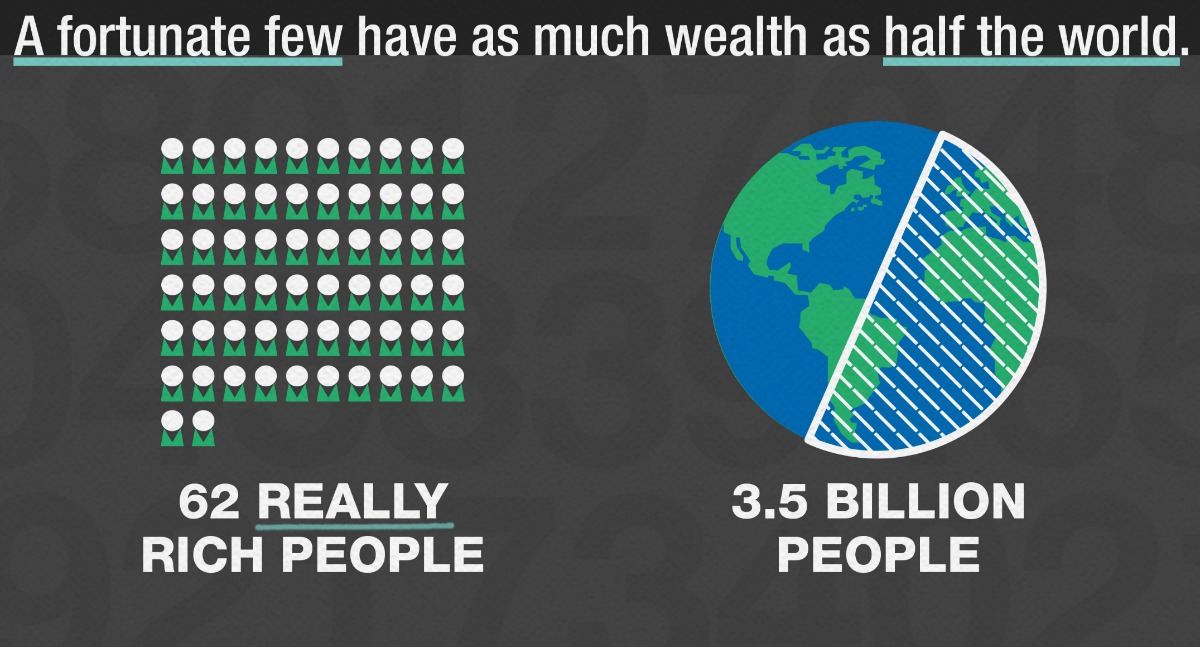
Bezos and his billions
In some cases, the bosses have ‘generously’ compensated workers for their tireless efforts. In effect, they can see the anger that is accumulating, and they recognise the explosive damage that could come about as workers see the stark differences between the rich and the rest of us during the pandemic.
For example, Amazon has enormously benefitted from a surge in online shopping during the lockdown. In response, the giant tech company implemented a $2 per hour pay bonus for its warehouse workers. But they then cut this scheme at the end of May, stating that it had cost them over $800 million in profits.
Nearly 20,000 Amazon workers contracted coronavirus, while Jeff Bezos continues to deny paid sick leave and hazard pay to his workforce.
How did Mr. Bezos, the wealthiest man alive, do during this pandemic? He increased his wealth by $85 billion since March. Truly disgusting. https://t.co/LMknPEaq7S
— Bernie Sanders (@SenSanders) October 2, 2020
Ironically, this sign of ‘gratitude’ turned into its opposite, revealing where these wages normally go: to the fat-cat shareholders and bosses!
In fact, Amazon CEO Jeff Bezos could pay each of his 876,000 employees an astonishing $105,000 bonus and still be as wealthy as he was at the onset of the pandemic. Yet he and his ilk claim that we are ‘all in this together’!
Parasitic system
 The message is clear: under capitalism, workers are condemned to a life of hardship and struggle, all so that the elite few at the top can enjoy a life of luxury. As Karl Marx remarked in Capital:
The message is clear: under capitalism, workers are condemned to a life of hardship and struggle, all so that the elite few at the top can enjoy a life of luxury. As Karl Marx remarked in Capital:
“Accumulation of wealth at one pole is…at the same time accumulation of misery, the torment of labour, slavery, ignorance, brutalisation and moral degradation at the opposite pole.”
These words ring more true today than when they were written, over 150 years ago. It is therefore no surprise that many are drawing increasingly revolutionary conclusions: that we need to overthrow the parasitic capitalist class and their broken system.

